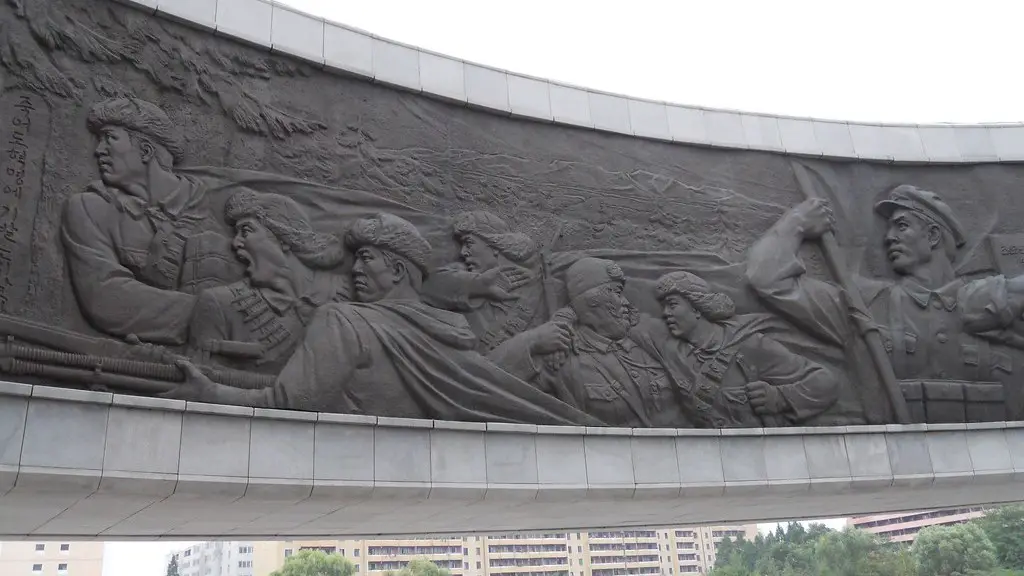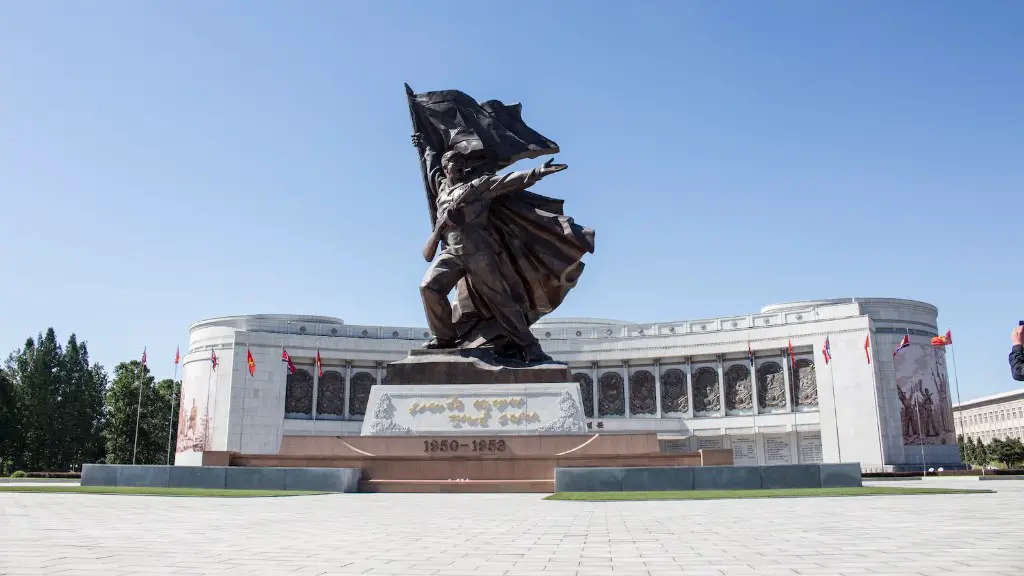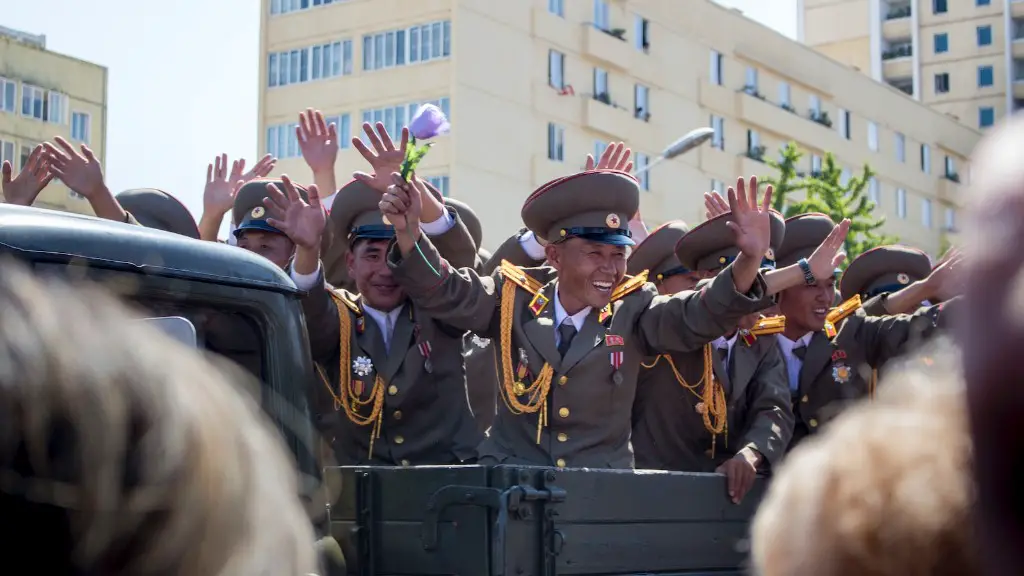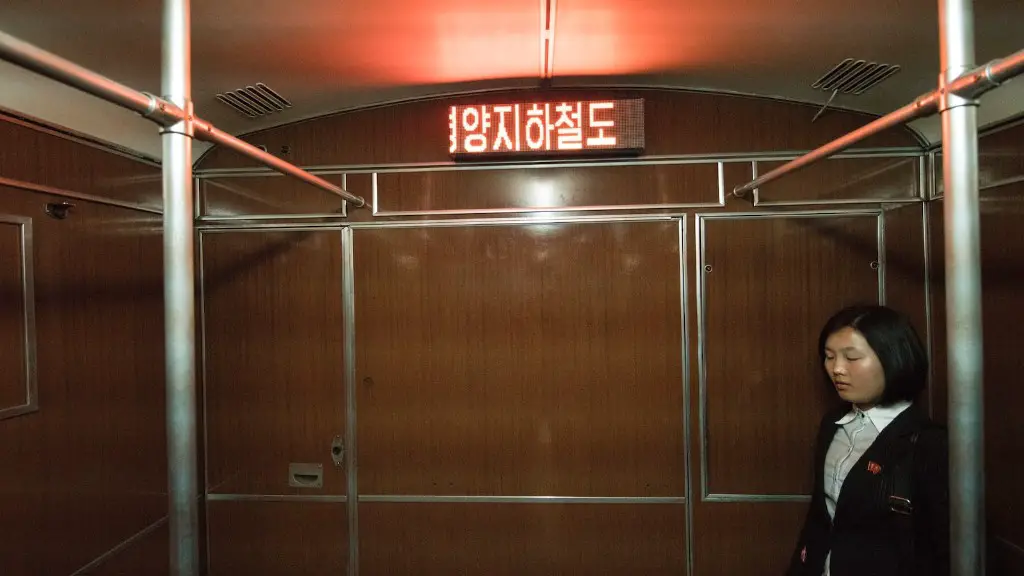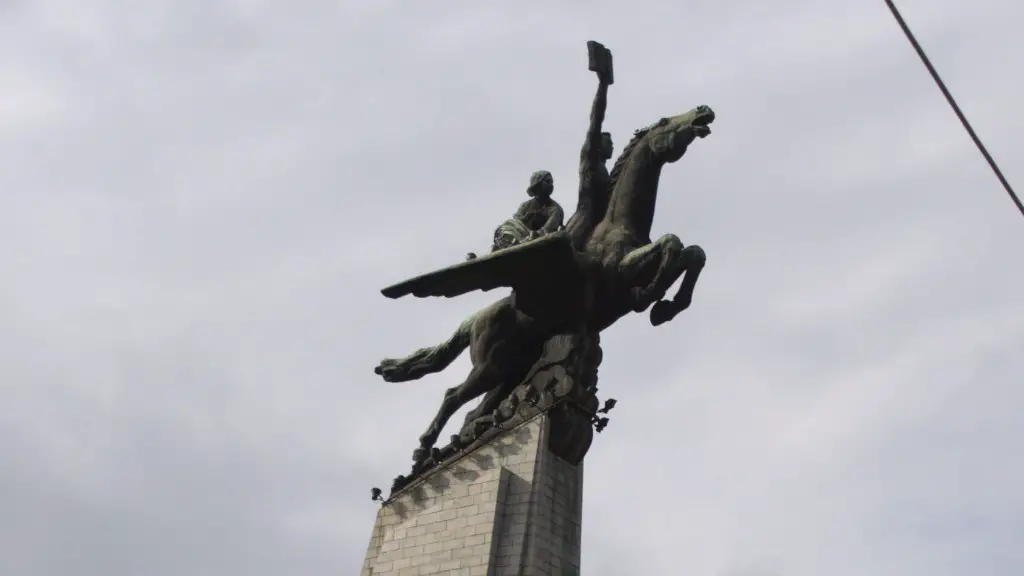History of Religion in North Korea
North Korea is a predominantly atheistic country, where religion is believed to be banned. The country’s absolute-ruling hereditary autocracy, the Kim dynasty, strictly controls the lives of its citizens and does not encourage religious activities. Although there is no reliable data available for the religious beliefs of the North Korean population, it is believed that the majority of the population are atheists or traditionalists on a nominal level.
From the founding of the state in 1945, the ruling Kim family has promoted a policy of anti-religious sentiment and activities. The idea of learning and looking for guidance from a higher power was discouraged, as the Kim family sought to concentrate power in their own hands. This sentiment extended from 1945 to the present day.
The Kim regime’s official position on religion is that the state should be the sole source of power and religious observance should be left to the individual. Yet the country has a long history of religious practice, and North Koreans have traditionally believed in Buddhism, Christianity and Shamanism.
Throughout its history, North Korea has been influenced by Korean Shamanism, a religion which follows ancient principles of nature worship, believing in gods and spirits that inhabit the natural world. During the Silla and Goryeo dynasties, Buddhism was the dominant religion in Korea, and the same was true of North Korea until the rule of the Kim dynasty.
Although there is no reliable statistical evidence of religious belief in North Korea, there have been reports of underground practices of Buddhism and Christianity in the country. There are also some reports that the ruling Kim family, despite its anti-religious public stance, are secretly practising Buddhism.
In recent years, there has been a renewed interest in religion in North Korea, as the development of mobile technology and increasing trade and contact with other countries has provided a greater access to the outside world. The rise of evangelical Christianity has caused a stir among the North Korean populace, with practising Christians arrested and imprisoned by state authorities.
Religious Freedom in North Korea
Religious freedom does not exist in North Korea, and any form of faith-based activities is considered illegal. The laws in North Korea dictate that the state can take drastic measures against religious activities, and any perceived connection to foreigners. Although North Koreans may practice religion in private, most do so with great caution, making sure their devotion is not revealed to anyone outside of their immediate family.
Religious believers in North Korea have been subject to arrest, imprisonment, torture, and even execution by the government. Reports have emerged of severe human rights abuses against religious minority groups, especially Christians, who are routinely arrested and deported without trial to North Korea’s notorious labor camps, or face execution.
Despite the risk, there have been a few successful cases of religious refugees escaping North Korea. In 2013, the first known North Korean Christian refugee to the United States, Kim Yong-Hua, made his escape with the aid of a Christian missionary. In 2019, a group of North Korean Christians traveled to South Korea, detailing the ways in which they managed to secretly practice their faith in the oppressive state.
The South Korean government is actively trying to engage with North Koreans as part of its outreach efforts. South Korean pastoral ministry is also on the rise, providing aid and assistance to North Korean refugees and their families. However, the government has remained silent on the issue of religious freedom and persecution in the North.
Current State of the Church in North Korea
Despite the oppressive environment, there are still pockets of religious belief in North Korea, mainly underground. The Korean Church Council (KCC) estimates that there are approximately 100,000 Christians in North Korea, with a number of Christian churches operating secretly in hidden places around the country. The KCC also reports of underground Bible study groups, prayer meetings and evangelism activities, despite the risk of arrest and torture.
The leader of the KCC, the Rev. Ri Sul Ju, comments that due to the oppressive regime, the churches are not able to openly practice their faith, instead opting for house church sessions or worship in small groups. These groups often use Bible stories and songs to pass on the gospel message in secret, maintaining their faith in the face of immense difficulty and danger.
The church also provides humanitarian aid to North Koreans in need, such as food, clothing and medicine. According to Rev. Ri, they focus their aid on those in the country “least able to feed themselves, those facing discrimination and severe poverty.” Their efforts have seen the construction of churches in some parts of the country- though these must of course remain hidden.
Implications of Religion in North Korea
Due to the oppressive regimes in North Korea, religion has often been seen as a threat by the authorities. In 2014, in response to its citizens’ increasing contact with the outside world and possible exposure to gospel messages, the government issued an edict ordering its citizens not to engage in any sort of faith-based activities. Although incidents of religious persecution are relatively rare in North Korea, their very possibility restricts many North Koreans from exercising their right to freedom of religion.
Religious activities in North Korea may pose a challenge to the government’s monopoly on power and the Kims’ cult of personality, as worshipping a higher power and seeking guidance from a higher being can be seen as a challenge to the power of the ruling family. Furthermore, having contact with foreigners, particularly Christian missionaries, can be interpreted as an act of subversion and is harshly punished.
Additionally, the influx of religious ideas and teachings from outside North Korea, especially those of Christianity, can present a challenge to the North Korean regime, as such teachings stand in stark contrast to the country’s state-controlled worldview. Consequently, the government has adopted a stringent policy towards missionary activity and cautious attitude towards the expression of religious beliefs.
Christianity in North Korea and the Future
As North Korea’s contact with the outside world increases, the number of Christians residing in the country is expected to increase as well. Some observers believe that Christianity could grow to become the main religion of North Korea in the future.
Although the North Korean government is unlikely to ever promote religion, it is also unlikely to back away from its current policy and allow unrestricted religious freedom. It is unclear at this point how the government will handle any potential surge in religious activity, or what kind of regulations it will impose on religious organizations.
Ultimately, whether or not the growth of Christianity in North Korea will be a step forward for religious freedom in the country remains to be seen. Nonetheless, it is clear that the faith-based activities of the largely underground church are a source of strength and hope for many North Koreans living under oppressive conditions.
Conclusion
Religious practice is largely absent from the public sphere in North Korea, and any form of faith-based activities is seen as a threat to the government’s monopoly on power. Despite the risk and potential consequences, religious activity is still taking place in the country, particularly of Christianity and underground Bible study groups.
Although currently the future of religious freedom in North Korea remains uncertain, there is hope that the growth of Christianity in the country could be a step towards greater freedom of expression. It remains to be seen whether the North Korean government will accept this and eventually allow unrestricted freedom of religion, or remain opposed to any form of faith-based activities.
